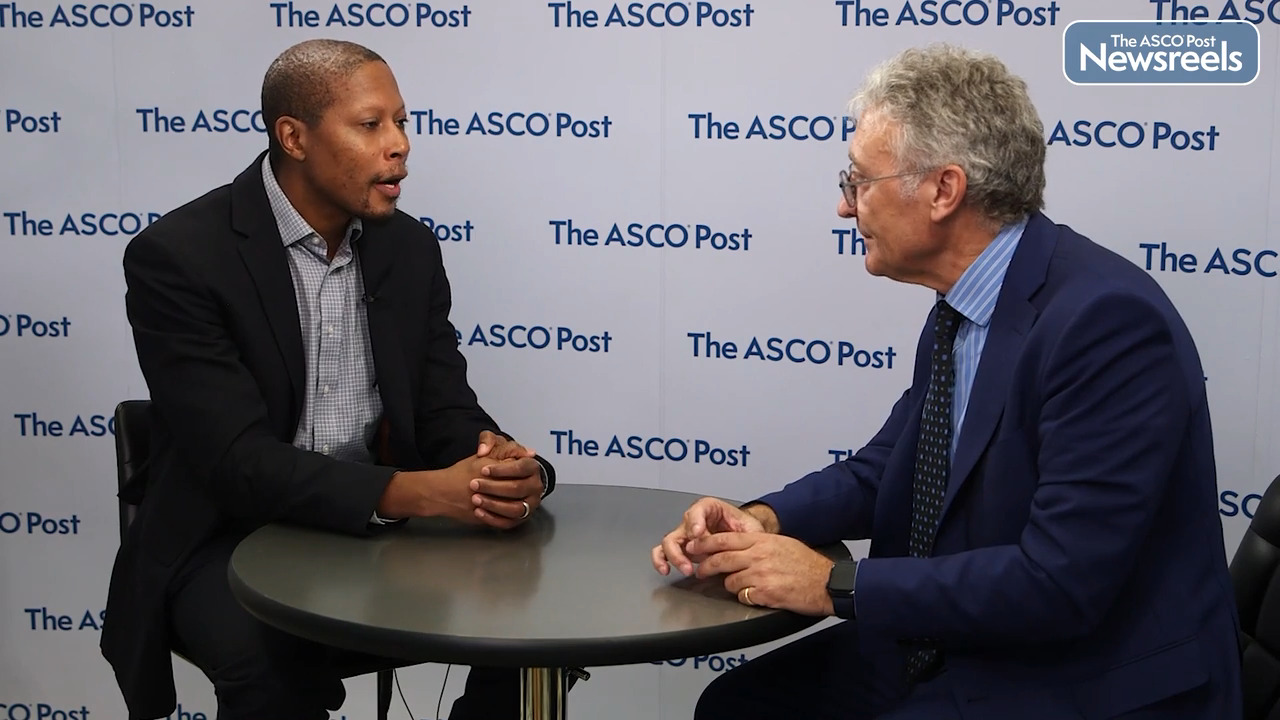Transcript
Disclaimer: This video transcript has not been proofread or edited and may contain errors.
The myelodysplastic syndromes are a very heterogeneous group of hematopoietic disorders, and basically, clinically patients with MDS develop cytopenias related to bone marrow failure and then in some cases an increased risk of transformation to acute leukemia. MDS is generally divided into what we call lower-risk versus high-risk disease, and we use a number of classifications such as the IPSS, the IPSR, the IPSN. But the reality is that majority of the patients will have lower-risk disease and their main characteristic at the initial presentation will be cytopenia of which anemia is the most important one. And for a significant subset of these patients, transfusion requirements are a major burden for them, basically needing transfusion that could be once a week or every so many weeks, depending on their needs. We know for a long time that one of the major needs for our patients with lower-risk transfusion-dependent MDS has been the use of drugs that could improve anemia and therefore decrease the number of transfusions needed.
For many years, we have drugs that were known as erythroid stimulating agents, ESAs, that are the standard of care. These are safe compounds. We've used them for probably over three decades, but they are not very effective and their responses don't really last for a long period of time. So we've been really trying to develop new agents for anemia for our patients with low-risk MDS. So luspatercept is a drug that modulates the TGF beta pathway. This is an important component of erythropoiesis and was first tested after a number of phase one, two trials in a second line trial known as the Medalist Trial. This was a study published actually in the New England Journal with planarization attached a number of years ago for patients with a specific type of MDS known as ring sideroblastic anemia. In that study, patients had already used or quote-unquote fail an ESA, and the study was a placebo-randomized study. It got the drug approved as a second line, and it gave us a good idea of the toxicity profile of this compound.
With this, we decided to move this upfront and design this command trial. This is an important study. So here in patients that had not received prior therapy, we randomized luspatercept versus an ESA, in this case appointing alpha. It's a large study, 178 patients in each arm, and the results are very clear. A primary endpoint of the study was basically to achieve this composite primary endpoint that consisted of transfusion dependency defined by being at least 12 weeks without needing a transfusion, and actually also increasing the level of hemoglobin to over 1.5 grams per deciliter. A response was defined as that, and the results are very clear. Luspatercept said basically doubled the response rate from 30% to 60% compared to the ESA. But in my opinion, even more importantly, it doubled almost the duration of response from 77 to 122 weeks. I think this is important data.
The toxicity profile were very similar, and I think that this basically means that this class of agents, in this case, luspatercept, is going to likely move upfront for a majority of patients with low-risk myelodysplastic syndrome in need of transfusion. My conclusion is this is a very important step now for our patients. It's actually going to give us emphasis to continue to do research in this area and really try to see if we can bring the risk responses with other agents or combinations to maybe 100%. And I think it's going to really give us a lot of energy for a group of patients with a difficult disease to treat like myelodysplastic syndrome.




